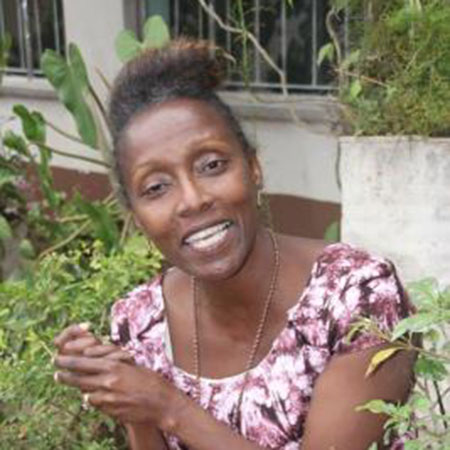
After the September 2013 Westgate terror attack forced the premature cancellation of the Storymoja Festival, Muthoni Garland, the festival director, contemplated suspending the annual gathering of literary creatives.
Had she made the decision, it would have sounded a death knell for Kenya’s only professionally run international arts festival.
“It was one of my lowest moments,” a sombre Muthoni reflects. Ghanaian poet Kofi Awoonor, the headline act at the festival, was among those killed at the Westgate mall in Westlands. This was a cruel blow to Muthoni, given the lengths she had gone to get him to grace the festival.
“It was like someone dying in your house, it was absolutely devastating,” she adds solemnly.
Sitting in her office in Spring Valley, Muthoni narrated to The Nairobian how the terrorist attack and its immediate aftermath caused confusion and panic within their ranks.
Such was the uncertainty, as they contemplated visiting mortuaries in Nairobi, since Kofi was the only person among their guests who was unaccounted for.
Much later, the Ghanaian High Commissioner confirmed the body was at the Guru Nanak Hospital mortuary. Kofi’s son had also been shot and was undergoing surgery.
“Most of our guests were staying in a hotel just behind the Westagate, and since most were journalists and writer types, we feared their professional curiosity would take them to the ‘centre of action,’ so I had them all moved to my house, as we made arrangements to have them travel back to their respective destinations,” she explains.
In the confusion, a Columbian dance troupe, coming to perform at the festival, landed at JKIA, but was forced to board another plane back home on the same day.
“It was like living in a bad dream,” Muthoni recalls with a visible shudder. Her hopes were eventually restored by Kofi’s family.
“His son insisted that this year’s festival had to take place, if only for his father’s memory,” she says. “Virtually all our guests for last year confirmed they would be returning for this year’s event.” Just like every dark cloud has a silver lining, last year’s tragedy resulted in Storymoja getting probably its highest profile guest yet.
Nobel Prize winner Wole Soyinka accepted to be their chief guest for this year’s event, which started on Wednesday September 17.
“We had been trying to get Soyinka to come to the festival since 2007 in vain,” Muthoni says. “In the aftermath of Kofi’s death, Soyinka penned many essays about him and terrorism. Apparently, they were good friends.”
Obviously, Soyinka must have figured that Kofi died while attending the Storymoja Festival. It must then have occurred to him that the Kenyan festival is a serious literary fair, and therefore worth his time.
“Kofi must have done the trick,” adds Muthoni. She explains that her vision for Storymoja is for it to be the “biggest gathering of thinkers and writers of African descent in the world, telling the African story.”
This, she says, is reflected in the cadre of guests they invite for the festival. This year’s theme, like last year’s, is ‘Imagine the World’.
“We want to emphasise the need for imagination,” Muthoni says. “People only associate imagination with the arts. Imagination guides you to make discoveries. Without imagination, you cannot succeed.”
This year’s festival has something for each age group—from children, the youth to adults.
“Last year, we experimented with the children’s event and we were almost overwhelmed by the enthusiastic response we got from school parties, some of whom started arriving at the scene as early as seven in the morning,” says Muthoni. “This year, we are better prepared for them.”
Keen observers will also notice that the festival has dropped the ‘Hay Festival’ tag. Muthoni explains that their decision to drop their association with Hay Festival was informed by a number of things.
“Firstly, we wanted to craft our own distinct identity without being associated with a Western festival,” she explains. “In the beginning, it was crucial to associate ourselves with Hay as we did not have the necessary experience to hold a literature festival. We also needed their clout to attract renowned artists who have visited our events,” Muthoni says.
She believes they have finally come of age. While they needed to associate themselves with Hay in the past to attract big names, today, writers and artistes are directly writing to Storymoja asking to participate.
There is also the issue of funding. She explains that some donors and sponsors were not willing to work with them for as long as they were attached to Hay. Some of the festival’s partners this year include African embassies, which have facilitated artists from their home countries to perform at the festival.
 The Standard Group Plc is a multi-media organization with investments in media
platforms spanning newspaper print
operations, television, radio broadcasting, digital and online services. The
Standard Group is recognized as a
leading multi-media house in Kenya with a key influence in matters of national and
international interest.
The Standard Group Plc is a multi-media organization with investments in media
platforms spanning newspaper print
operations, television, radio broadcasting, digital and online services. The
Standard Group is recognized as a
leading multi-media house in Kenya with a key influence in matters of national and
international interest.









